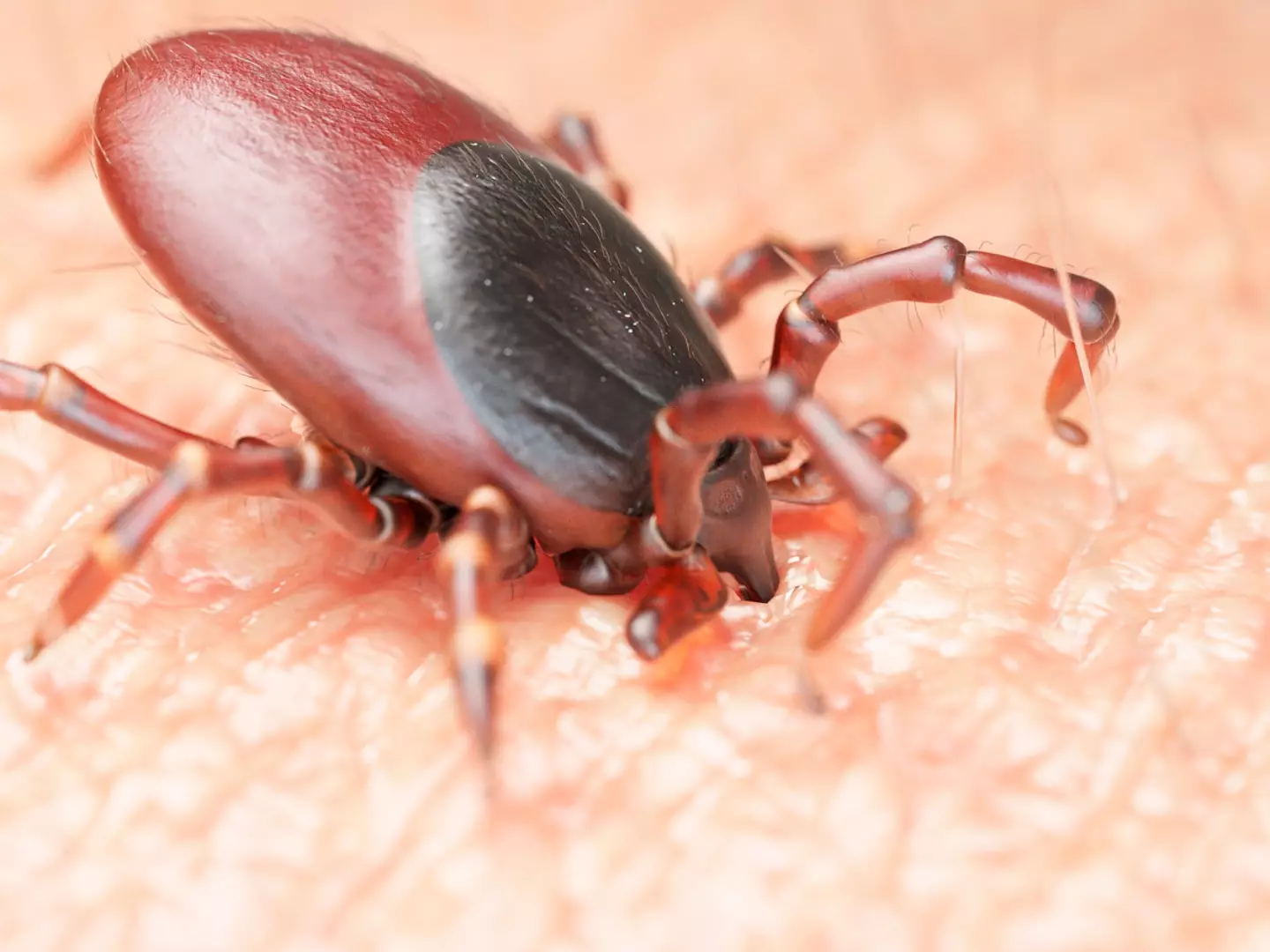
Brits are being warned to keep a look out for 'Monster Ticks' this summer and the blood-sucking buggers are more intense than the normal ones.
The aggressive - and much larger - ticks are called Hyalomma lusitanicum, originating in Africa and Southeast Asia.
They've not only been spotted across Spain, the Balearic Islands and southern Italy, but in the UK too. Great.
What are 'Monster Ticks'?
These ticks are four times larger than the ones we normally see in the UK, you'll be glad to know.
Carlos Pradera, a specialist in pest control, told La Vanguardia: "H. lusitanicum actively seek out their prey, running towards them once they detect their presence.”
Advert
Ticks are found in many outdoor environments, such as grassy and wooded areas.
You might spot them while on a walk in some urban parks and gardens.

How to avoid tick-borne infections?
According to the UK Health Security Agency, you should 'stick to clearly defined paths and try to avoid brushing against vegetation where ticks might be present'.
"Use insect repellent (for example DEET) and regularly check clothing or exposed skin so that you can spot any crawling ticks and brush them off," it added.
What is Lyme disease?
Lyme disease is a bacterial infection spread to people through the bite of an infected tick and it's easier to treat if diagnosed early.
"Spring and summer are great times to be outdoors but don't forget to be aware of ticks," warns Katie Russel, Consultant Epidemiologist of the UK Health Security Agency.
"Symptoms can include a spreading circular red rash, known as a bull's eye rash, or flu-like symptoms including fever, headache and fatigue.
"Symptoms may appear up to three weeks after being bitten by a tick or spending time outdoors.
"In the majority of cases, Lyme disease is successfully treated by a course of antibiotics and patients recover fully."
However, she warns: "If left untreated, the infection can spread to the nervous system, the joints and rarely the heart.
"Removing it [the tick] safely and correctly is the best way to reduce the risk of infection.
"The safest way to remove a tick is with fine tipped tweezers or a tick removal device.
"Fine tip tweezers are different to those you might use to remove eyebrow hair.
"They are narrow and pointed at the tip."
To remove a tick, Russel suggests to 'use the tweezers and grasp the tick as close to the skin as possible and pull upwards slowly and firmly'.

Chronic Lyme disease
The medical professional claims 'there is no agreed definition for the term 'chronic Lyme disease' among doctors'.
"Some people use the term chronic Lyme disease to describe a range of non-specific symptoms," she said.
"The symptoms of Lyme disease may overlap with other conditions, such as fibromyalgia, chronic fatigue syndrome and, more recently, Covid-19.
"If anyone thinks they have any of these symptoms after being bitten by a tick or spending time outdoors, they should promptly contact their GP or NHS 111 and remember to tell them where they've been and if they remember being bitten by a tick."